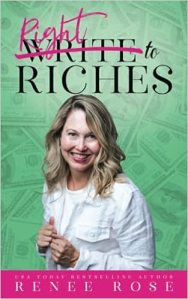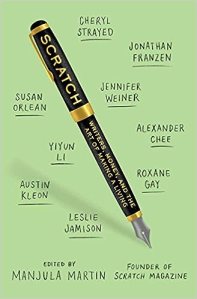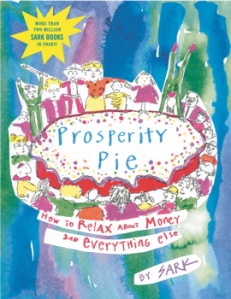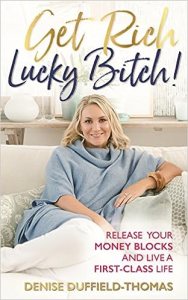Posts Tagged ‘writing exercises’
How come pleasure never makes it on to…a dutiful list of dos and don’ts?
Doesn’t joy also get soft and flabby if you neglect to exercise it?
Ellen Goodman
It’s Valentine’s Day (in the U.S.)!
Many people are thinking about love in its various forms.
I’m thinking about your love relationship with your creative life.
When was the last time you wooed your creative self?

Do I hear crickets in the background?
It’s mid-February and if you’re like me, you’ve experienced one or more of the following:
– the thrill of holiday overindulging has subsided (but the pounds still linger), leaving you with a general malaise.
–you can’t find the journal where you carefully scripted out New Year’s intentions.
–you’ve had to deal with an unexpected computer breakdown, home repair(s), lingering cold, sick child, etc.
So, for most of us, we’re back to reacting to the most immediate to-dos on our very long list.
As creative folk, sometimes we spend a lot of time focused on what we’d like to have more of in our lives: time, money, recognition, etc. A bit of griping and wishing is fine, but ultimately that kind of energy doesn’t get us in the mood to WOO anything (or anyone). By starting off with feelings of love and friendship for our long term creative projects, we may just find that we can muster up the energy to find out what we actually want to do next and how to get support for it.
Just like any other relationship that we value, we must make time for our creativity. And, just like any other relationship, feelings of pleasure, kindness and affection make us and others feel good. I suggest taking some time this Valentine’s Day to court your creative life. Is there a project that you need to seduce? Can you make time for a date with your creative work today or later this week? Have you told your creative self how much you value it?
Writing prompt: Try writing a love letter to your creative self or project. Extoll its virtues, ruminate on how it makes you feel (when the relationship is going well), and dream about the possibilities of love rekindled. Decorate the letter if you like and put in a place that you can see it and feel inspired when necessary.
Photo credit: Getty Images
P.S. Want more innovative ways to keep connected to your creative self during difficult times? Check out my free guide here
Early Bird Special For Chart Your Path to Publication 2023 –You Don’t Want to Miss This!
Posted on: November 21, 2022
Hi writers,
Ten years ago, around this time of year, I became a published (and paid) writer! My story, ‘Family Line’ was published in the Stories of You: Tales of the Second Person. That story has gone on to be widely anthologized in print and audio. I still get goosebumps thinking about that milestone.

“Family Line” appeared in this recent anthology
Let’s celebrate my win with something to support your writing life!
Here’s what I’m going to do:
I’ve created an early bird special for you to enroll in my Chart Your Path to Publication online course which starts in January 2023. I only open this course once a year.
I know that might be enough for you but I’m going to do something AWESOME here which is to include my very popular mini-training on Savvy Submission Strategies for Writers!
This mini-training helps you take the fear, overwhelm and confusion out of the submission process so you can be a more visible, successful and confident writer.
To get you ready for 2023, I’ll send you the training (two videos) and then you can join me in an interactive live workshop via Zoom on Sunday, Dec 4, 2022, 4pm EST:
“How to Navigate The Submission Stream”
During the workshop, I will be guiding you through exercises to help align your writing goals with easeful ways of getting more of your work into the “submission stream”, accepted, and published. We’ll have time for Q&A so you can get answers to some of your burning questions.
*Delivered via Zoom. I’d love for you to be there live but if you can’t it’s no problem–it will be recorded!
Many of you have wanted to work with me and this course provides a great way to do so.
Chart Your Path to Publication online course
Modules on how to submit your work, tools of the trade (how to write cover letters, bios, query letters, book proposals), how to find markets for your work, author mindset (how to navigate rejection) + MUCH MORE+ a Live Coaching Call
My online course provides you a roadmap to expertly and joyously navigate your way through the ever-changing and volatile landscape of publishing.
This course will teach you strategies to beat the odds of rejection. You’ll learn how to select markets for your work, how to submit your work, track submissions, and find great resources.
If you come to the end of every year wondering why you aren’t more widely published, this is the course for you!
Let me support you to get published and experience confidence every step of the way.
My early bird special is pretty amazing. Those of you who know me know I like to “over deliver”.
This offer is gone 11:59 pm Monday, Nov 28 (Pacific Standard Time)
Check out all the details for enrollment here.
In a week or so I’ll be telling everyone outside this community about Chart Your Path to Publication and offering it at a higher price and without this bonus workshop. So, if this sounds good to you, I’d go here now.
Best,
Michele
PS, I should mention that this year’s cohort of writers I worked with in Chart Your Path to Publication had many writing successes including:
-Earning their first publication credit!
-Getting more sales of their work!
-Establishing and refinement of their writing practices
-Upgraded mindset about what is possible for them
-Gained more confidence working with editors, agents and publishing professionals
-Negative writing habits dissolved, even after years of struggle
Happy New Year, all!
The second most important step in becoming a published creative writer, after finishing a piece, is submitting one’s work. It’s the one thing that most writers don’t know how to do well, don’t do enough of, or don’t do consistently.
I’d like to help you beat the odds of your writing being rejected as we launch into 2022.

Fear of rejection, lack of confidence, and overwhelm topped of the list of challenges writers told me they faced submitting their work. Many writers struggle with submitting their work consistently and finding venues. You may struggle with cover and query letters, writing a great bio or knowing how to manage editorial feedback.
I GOT you. The wait is over. And, just in time to get your 2022 off to a productive start.
My FREE mini-training ‘Savvy Submission Strategies for Writers’ is designed to help you shed your ‘invisibility cloak’ and gain the tools you need to send more of your work into the world consistently and with confidence.
It begins on January 5th and includes two videos and an amazing LIVE workshop with me on ‘How to Navigate the Submission Stream’ on January 9th that you don’t want to miss.
And, there will be some surprises along the way!
CLICK HERE to register for the FREE mini-training.
I know the long and challenging journey to publication and I want to create some short cuts for you. There’s so many things I didn’t know about the submission process and also what to do when a work is accepted (intellectual property rights matter!). This will help emerging and established writers (indie or traditional publishing inclined).
Nothing in this training is theoretical or fluff. It’s based on my fifteen year coaching career helping writers become published and my experience as an award-winning writer of fiction, poetry and nonfiction. I guarantee that this training will change the way you think about your writing potential as a writer and how you approach the submission experience.
CLICK HERE to register for the FREE mini-training.
Finally Finish Writing Your Book: Join Me at ‘Be a Bestseller: Structure Your Story of Success’ Series
Posted on: April 11, 2021
Feeling stuck in your writing and storytelling? Are you not finishing things because you get overwhelmed with keeping track of your characters and plotlines? Frustrated with how you are plotting your novel or memoir? Are you painting yourself into too many story corners that you don’t know how to get out of?
Want to know how to bring a story full circle, connect the dots and create a fantastic ending? Want to know more about ‘story beats’ and how to effectively employ them?
Want some inspiring writing craft and mindset tips?
Great, my writer friend, Emma Dhesi can help! She is hosting a cool series that you’re going to love.
Emma has brought together 20+ writers, creatives, editors, and publishers for this complimentary training series.
The Be a Bestseller: Structure Your Story of Success series is guaranteed to ignite your creativity. Many speakers will be sharing their expertise for better plotting and story structure and others will be focused on mindset issues. It is geared for novelists, memoirists and short story writers. She is a fantastic interviewer.
And, I’m ALSO one of the speakers! I’ll be talking about how positive self-talk can supercharge your writing life (as you know one of my favorite topics)!
And it’s totally free. Sign up here and see all the speakers: https://masterclass.beabestseller.net/MicheleTBerger

BTW: If you are struggling with motivation and momentum in your writing, you might like my free guide: Ten Ways to Keep Connected to Your Writing Self during COVID-19.
My 3 Words to Guide 2021! An Alternative to Making New Year’s Resolutions
Posted on: January 1, 2021
- In: creative writing | writing
- 1 Comment
Happy New Year!

I don’t usually make New Year’s resolutions. But I do like to have a set of guiding intentions for the year which are different than resolutions or even goals. Intentions feel less rigid than resolutions. This year to support my intentions, I am trying something new—Chris Brogan’s 3 Word Process. Chris Brogan is a consultant and bestselling writer and he has been sharing his 3 Word Process for over a decade. I had never heard of his process though it is quite popular.
You decide on three words and they guide “your choices and actions day to day”. They represent one’s commitments for the year and as Brogan says act as “lighthouses”. From his practice over the years choosing three words is better and more powerful than four words or two words.
I like the simplicity of narrowing one’s focus to encompass three meaningful words. Also, I believe 2021 will be a transitional year (especially the first half) due to the pandemic. Last year, my well-groomed goals quickly flew out the window as was true for many. Adaptability and flexibility were key lessons for me in 2020, so there’s no reason now to get locked into rigid goal-setting given so many variables out of my control.
My words for 2021 are Systems, Replenish and Solo
Systems: I want to undertake systems level change and integration with my technology (i.e. multiple computers, phones, etc.), but also between my career, writing life and coaching business. I’m looking for efficiency and ease.
Replenish: Despite the pandemic, 2020 was the most successful year I ever had as a creative writer and coach across all metrics (e.g. publications, relationship-building, craft up leveling, revenue generated, and fun had). It was also an incredibly successful year in my academic career. I, however, burned the candle at both ends and have been doing so for a long time. I need fill the creative well.
Solo: I love collaborations and am good at them, but 2021 will be the year for discernment. Some of my academic collaborations are naturally coming to an end because our projects are nearing completion. Others, I will need to consciously change or end. As a writer and coach, I will use this word to remind me to weigh the pros and cons of a potential collaboration.
If you are looking for a guiding rubric in 2021 besides the standard New Year’s resolutions, you may enjoy the 3 Word Process. Find out more here. And, if you decide to use his process, please share your 3 words—we can hold each other accountable!
Does Your Writing Life Need a Reset? MY NEW ONLINE Fall Writing Retreats Are HERE!
Posted on: September 20, 2020
Hi Writers,
Over the past several months, I’ve heard from so many writers that their old ways of doing things just aren’t working.
Many of us aren’t writing and if we are writing, we’re not having a lot of joy doing it. Many of us are finding it hard to get ourselves to the page and to stay focused when we arrive. We’re often afraid, discouraged, and tired. Very tired. Our inner critics have been very loud during the past few months.
We haven’t danced with, wrangled with or been charmed by our muse(s) in quite a while.
I HEAR you and I’ve designed something for you that you will LOVE.
It’s time to RESET. I’ve found that if I don’t reset every 5-6 weeks regarding my mindset, exercise routine, and writing habits, I hit a wall.
A reset is in order. And FALL is a perfect time for one.
I’ve designed a NEW online monthly writing retreat series: Reset, Refresh and Reclaim
I call these themed retreats reset, refresh and reclaim for a reason—we need these qualities now more than ever to deal with the changing pace of life!
These well-paced structured retreats are designed to inspire you and connect you to other writers. You’ll get some serious writing done and have FUN while doing it!
Give me the next four months and I will take you from creatively blocked to creatively sparked!
My reset approach has kept me productive, writing and getting published throughout the last six months.
Space for these online retreats is limited. I’m offering this to YOU at these rates, before I advertise broadly, because you are part of my community as an engaged reader of this blog.
Want to see how excited I am to tell you about these retreats and what we will do in them? Here’s a brief video:
If you don’t want to watch the video, it’s fine. All the details are below.
Here’s what people have said recently about my expertise as a coach and writing facilitator:
“Michele’s calm voice and emphasis on mindfulness practices has been a boon to my writing.” Amy T.
“I’ve written more with Michele in two hours during her Write-INs than I have during the last four months.” Francesca P.
“Michele encourages one to do their deepest work in a supportive environment.” Mark J.
“I thoroughly enjoyed September’s writing retreat! You have a wonderful teaching style, and as someone who struggles with ADHD, you kept me fully engaged the entire time.” Rachelle H.
ONLINE WRITING RETREATS
Reset, Refresh and Reclaim
If you’ve found yourself isolated, alone, and struggling with your writing, imagine how much different writing might feel if you had some dedicated and structured time, plus awesome community and coaching support.
Here’s a way to write THROUGH the fear, sludge and anxiety!
You can sign up for ONE retreat or ALL of them.
They all will include writing time (come with work or start something new), a brief writing craft discussion, fun writing exercises and games, mindfulness exercises for focus, and group coaching. We’ll have the option for a short lunch break and/or additional writing time.
Each retreat is curated to the needs and interests of the group. Once you register, I’ll send a brief survey to find out more about you. A few days prior to the workshop, you will receive additional information and any suggested readings or exercises.
Fall Retreat Dates:
*Saturday, Sept 26-The Harvest of 2020
Saturday, Oct 24-Characters
Saturday, Nov 21-Beginnings, Middles and Endings
Saturday, Dec 12–Author Mindset/Goals for 2021
(11am-2pm EST via ZOOM)
(Dec’s retreat will go 11-3, BONUS hour!)
(*tentative topics; each workshop is tailored to registered participants)
That’s 16+ hours of writing, community and support for you over the next 4 months!
Want to feel GREAT at the end of the year knowing that you MADE time for and NOURISHED your writing life? I know you do!
Ready to sign up? Ready to Reset?
Each online writing retreat is $69.00
Sign up for the remaining 3 for $197(discounted!)
I can accept payment in a few ways:
-via PayPal:
(The link above takes you to my Creative Tickle business link. In the comment box for PayPal, let me know which month(s) you are registering for.)
-I’m also on Zelle as Michele Berger (State Employees’ Credit Union)
Questions? Email me at mtb@creativetickle.com
Look forward to seeing you soon!
***
BTW: Your invitation still stands, click here to get your free guide: ‘Ten Ways to Keep Connected to Your Writing Self during COVID-19’.







